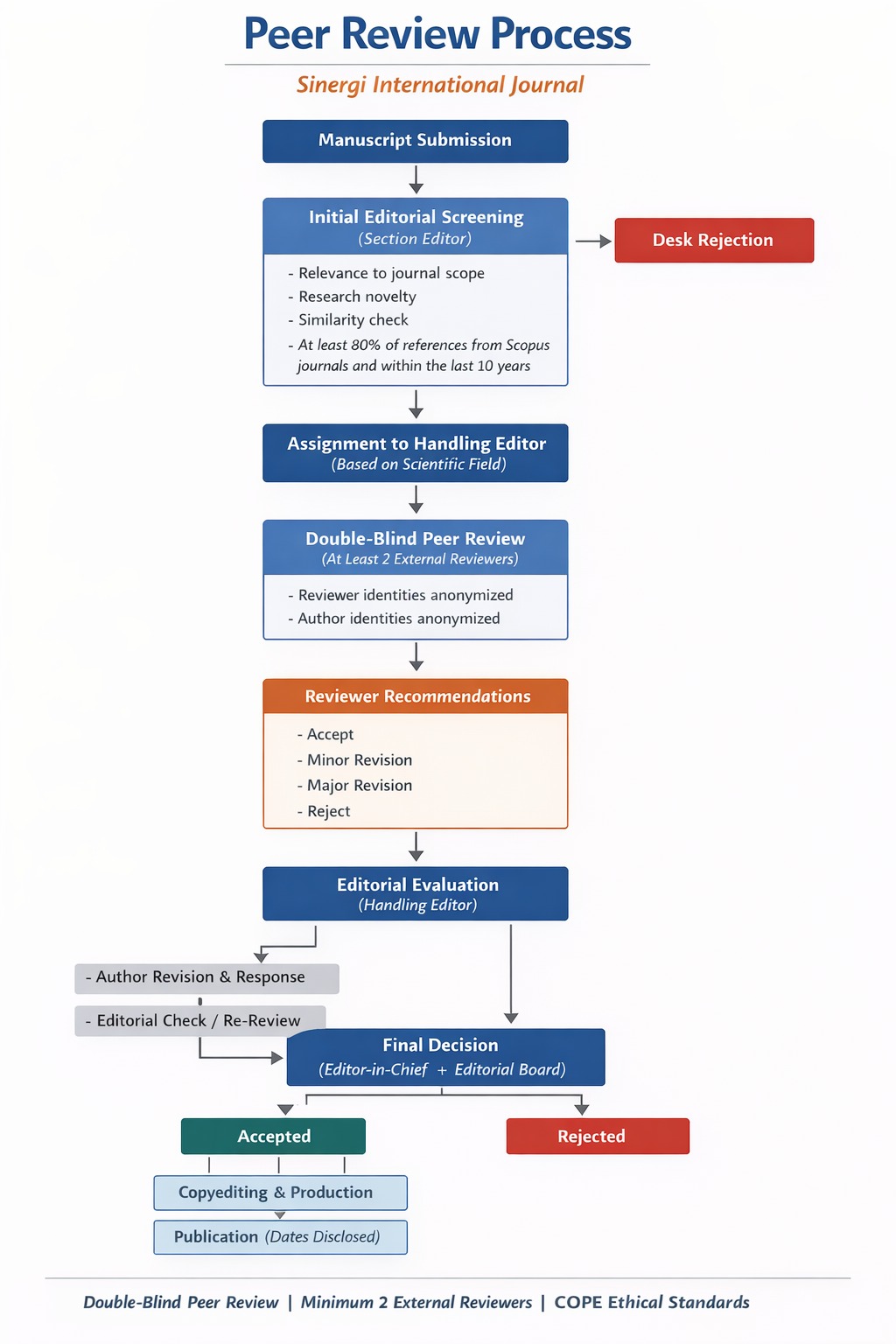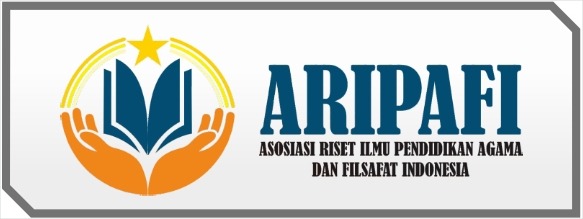Peer Review Process

Peer Review Process
The Sinergi International Journal of Islamic Studies employs a meticulous evaluation process for all manuscript submissions, ensuring high standards of academic rigor and originality in Islamic scholarship. Our review system utilizes a double-blind approach, maintaining strict confidentiality between authors and reviewers throughout the assessment.
Our editorial board comprises renowned experts in Islamic studies from diverse global backgrounds, offering a rich tapestry of perspectives. This international composition enhances the depth and breadth of manuscript evaluations, leading to well-informed editorial decisions that reflect the multifaceted nature of Islamic scholarship.
The review process unfolds as follows:
- Initial Manuscript Assessment: The Editor-in-Chief will screen a submitted manuscript to ensure its conformity to the Sinergi International Journal of Islamic Studies scope and basic submission requirements. The Editor-in-chief will assign an editor based on the articles’ scientific field.
- Comprehensive Peer Evaluation: Manuscripts passing the initial screening are assigned to a handling editor, who then:
- Selects a minimum of two experts in the relevant area of Islamic studies
- Orchestrates a double-blind peer review process
- Ensures a thorough and impartial assessment of the Islamic research
- Decision Based on Collective Expert Input: The journal requires at least two expert reviews before proceeding with any decision. In cases of significant discrepancies between reviews, the handling editor may:
- Engage a third reviewer for additional insights
- Seek further clarification from existing reviewers
At this juncture, several outcomes are possible:
- Manuscript rejection
- Request for minor revisions
- Request for major revisions
- Acceptance without changes
- Recommendation for resubmission (if substantial content or language modifications are necessary)
Accepted manuscripts are returned to authors for formatting refinements. The Editor-in-Chief makes the final acceptance decision, considering:
- Recommendations from the handling editor
- Approval from the editorial board
- Overall contribution to Islamic knowledge and understanding
- Internal Revision and Reassessment: Authors of manuscripts requiring revisions are given a three-week window to modify and reformat their work. Subsequently, the handling editor:
- Reassesses the revised manuscript
- Determines if changes adequately address reviewers' comments and suggestions
- May initiate additional revision cycles if necessary
- Final Publication Verdict: In this concluding stage, the revised manuscript faces a binary outcome: acceptance or rejection. The decision hinges on:
- The handling editor's assessment of improvements made
- Alignment with the Sinergi International Journal of Islamic Studies' quality benchmarks
- Potential impact on Islamic scholarship, theology, or practice
Manuscripts failing to incorporate necessary changes or falling short of the journal's rigorous standards will be rejected.
This multi-tiered review process ensures that the Sinergi International Journal of Islamic Studies publishes only high-quality, original research, maintaining its position as a respected source in the field of Islamic studies. By combining expert knowledge, diverse perspectives, and rigorous evaluation, we strive to advance the understanding of Islam and its various dimensions on a global scale.
Our commitment to publishing excellence extends beyond the review process. We continuously refine our procedures to stay at the forefront of academic publishing in Islamic studies, ensuring that our journal remains a valuable resource for researchers, theologians, and practitioners in the dynamic and multifaceted field of Islamic scholarship.





